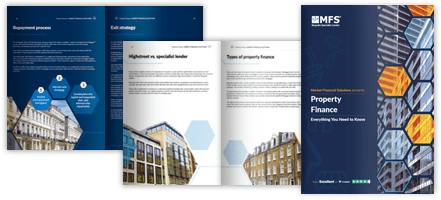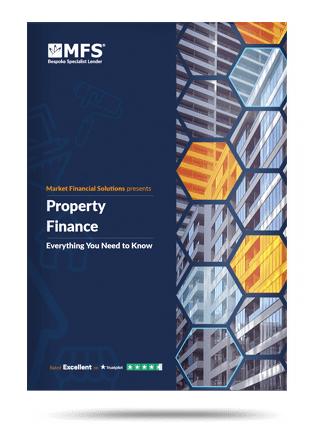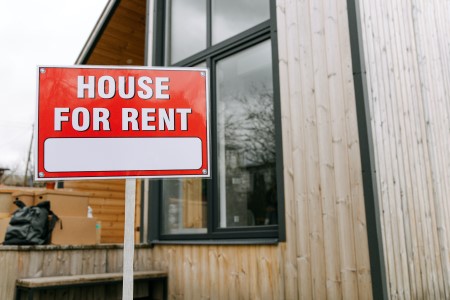Disclaimer
MFS are a bridging loan and buy-to-let mortgage provider, not financial advisors. Therefore, Investors are encouraged to seek professional advice.
The information in this content is correct at time of writing.


Burnout has become a real issue in our economy. The pandemic hastened and exacerbated many of the mental health challenges we’re all facing today. Being forced to work from home made the work/life equation tricky to balance.
Many of us were likely always in work mode during the lockdown years. Others may have ended up swamped by a backlog of work following a return to the office.
This has long-term impacts on productivity. The answer to the question of what to do when you feel overworked for many is, unfortunately, to simply avoid work altogether. Over 10 million workers in the UK have called in sick due to feeling burnt out according to MetLife UK.
What’s more, this is affecting staff across professions. A study covering 2020-2022 found 88% of UK employees, from teachers to trust-fund managers, experienced burnout during that period.
The impact of the market on brokers
However, it’s brokers who are really struggling against the question of what to do when you feel overworked. In late 2022, as we tried to keep up with pulled mortgage products, continuous rate hikes, and an unstable market, the pressures took a toll. Mentions of 18-hour days, email anxiety, and not getting enough sleep came to the forefront.
Yet, the market’s intensity hasn’t relented. Many property businesses and brokers reported record breaking activity in January. While spring is often thought of as the home selling season here in the UK.
We know brokers and their clients are struggling with all this. Our teams speak to brokers on a daily basis. Not just to support their deals, but also to get a feel for how things are in the market.
We understand just how overworked you are. We know the targets you’re up against. The deadlines you must meet.
The question remains, what to do when you feel overworked? The answer to this question will vary from person to person. There is no one-size-fits-all approach to managing stress and/or anxiety.
But, there are a few starting points everyone can engage with. We’ve rounded up some of the key stress pain points, how you could overcome them, and hopefully end up more relaxed and productive as a result.
Source: Mortgage Solutions, Mortgage Solutions
1. Try to get some more sleep
Sleep is usually one of the first things to suffer at the hands of stress. A heavy workload can weigh on your mind, keeping you up at night. It’ll be irrelevant to worry about what to do when you feel overworked, if you can barely stay awake at your desk. Unfortunately, just how little sleep we’re getting is reaching dangerous levels.
As many as 7.5 million brits are getting less than five hours a night on average, according to Direct Line Group. This will obviously have an effect. A lack of sleep puts your health at risk, let alone your productivity.
It’s in all our interests to resolve this issue too. By helping workers struggling with chronic insomnia disorder (CID), we could add £34bn to the economy.
Fortunately, you have many options available to improve your sleeping habits. There are the basic tips: go to bed and wake up at the same time every day, exercise regularly, wind down in the hour before you go to sleep etc.
Then there’s the more advanced habits. You can try to “trick” your body temperature. If you can have a bath with the water at approximately 39 degrees Celsius – your core temperature will drop a few degrees. This will replicate your body’s built-in pre-sleep adaptations. If you really need to decompress, you can always attempt a bit of yoga or meditation before bed.
Source: Direct Line Group, HR Grapevine, NHS, The Telegraph, The Telegraph
2. Watch what you eat
We’ve all been there. You work late, get home at a ridiculous hour, and order a takeaway – you need a pick-me-up after the day you’ve had. Or, you reach for the sugary snacks to get you through those 4 hours of zoom calls ahead of you.
It’s so easy to do, but it’s unlikely worth it. Eating a slice of cake is rarely the answer to the question of what to do when you feel overworked. Excess sugar, fat, salt etc. inevitably just leads to a crash. Over the long-term, we may feel sluggish, unhealthy, and unhappy. We know it’s easier said than done, but it’s worth setting time aside to cook and prepare real food.
And if you can’t cook, learning could present a fun, productive new hobby. Eating well not only fills us with more energy, but there’s plenty of evidence linking a healthier gut to better mental health. The Mediterranean diet is famous for this.
Learn to love fresh fruit, vegetables, nuts, and legumes. Reach for an apple the next time your sweet tooth craves something.
Source: BBC, The Telegraph
3. Watch what you drink
On the flipside of the diet coin is alcohol. Another vice which only offers temporary reprieve, and long-term decline. In our industry, where so much of what we do is built through networking, it can be especially hard to avoid the occasional social drink. But, it can be all too easy to use alcohol as a crutch.
A drink may offer a quick solution to the stress you’re facing in the here and now, but this is a deceptive “fix”. Over the long-term, continuously turning to the bottle will only worsen any anxiety you’re facing. Not to mention the physical toll it’ll all take.
There are countless guides and methods out there to help you cut back on the booze. You can follow the “20-minute rule” – taking a 20-minute break after finishing one drink before buying another. You could elect to only drink to celebrate something, or you could try to avoid your drinking triggers altogether.
You may not even need to dramatically cut down at all. A few simple swaps could do wonders. Switching from white to red wine could benefit your health greatly. Also, spirits tend to have much fewer calories and carbs than beer, ales, and cider.
Who knows, maybe when you’re thinking about what to do when you feel overworked, the answer lies in reorganising your drinking cabinet! With alcohol, as is the case with most vices, it’s all about moderation. Find a solution that works for you, and do your best to stick to it.
Source: Bupa, The Telegraph, The Times

4. Get back to the gym
It’s a cruel, ironic twist of fate. To feel better over the long-term, both physically and mentally, you may have to suffer in the short-term! But you don’t have to deadlift your body weight or run a marathon to feel the benefits. All that may be needed is around 20 minutes of exercise a day to straighten out your mind.
You could get that done with a jog around the park, or even a few press ups in the office! Granted, the modern working world doesn’t help. It can be tricky going from a sedentary working schedule, where you’re sat down for 8 hours a day, to a mindset that’s all about burning calories.
But you can build it up over time. Maybe start with a half-mile run, rather than trying to hit a 5k on your first attempt. If you can, try to rope-in some of your equally stressed-out friends and co-workers. Team sports such as football or basketball tend to get particularly good results.
The connection between physical wellbeing and mental health is increasingly being recognised. Chess players and video gamers perform better with regular exercise. The same could be just as true for brokers. Mental health gyms are even popping up in the US – specialising in activities that help people adapt to life’s pressures.
It’s never too late to up your fitness game. Who knows, perhaps you could even meet with your clients at a pilates class, rather than the pub!
Source: Stylist, BBC, The Mirror, BBC
5. Make time for your friends and family
Like it or not, we’re social creatures. The more time we can spend with friends and family – the better. But this is much easier said than done.
For many of us, the lines between working hours and private life have blurred. Are you working in your bedroom, or sleeping in your office? What to do when you feel overworked is a hard question to address with constant access to emails, slack notifications, and 24/7 live chats.
We know how difficult it is to switch off. But at least try to get into the habit of turning off your work phone at night, and stepping away from your laptop.
For the sake of your sanity, find time to socialise and do more of the things you enjoy. And when we say “do” we really mean it. Get out and go to that pub-quiz. Decline the “fun” zoom trivia night.
The lockdown years set all this back, but by embracing socialising again, we can recover. If you’re more socially connected to family, friends, or your community you’re likely to be happier, physically healthier, and live longer, with fewer mental health problems as a result.
Fortunately, the social side of things can combine all the previously mentioned elements. Maybe you could attend a yoga session with your friends in the evening to relax your mind before bed. You could attend a cooking class with some buddies and learn to make healthier dinners. Perhaps you can share some refreshing mocktails after a strenuous gym session?
No matter how you do it, it’ll pay dividends. Socialising leads to increased levels of “happy hormones”. Try to spend at least some time each day talking and interacting with people – without a screen involved.
Source: World Economic Forum, Mental Health Foundation, The Mirror
Final thoughts
We know when it comes to de-stressing tips, you’re facing an information overload. There is no shortage of mental health guidance online, and most of it will be glossed over.
You likely know exactly what to do when you feel overworked. Your workload may just limit your ability to act on it. This is a broad, difficult area to fully get to grips with. What works for you, may not work for anyone else.
If you feel you need serious help with the pressures of your role, you’re best seeking professional guidance and care. There’s only so much that can be gleaned from online commentary.
Ultimately, we urge you to try and remember there’s only so much you can manage. There’s little point stressing over things that are outside your control. You don’t have a vote on base rate changes. You have no say in how inflation moves.
But, if you focus just on what you can control, you may see progress. The challenges you face may not even be as bad as you thought once you get organised. Catch up with your clients. Make a realistic to-do list. Get started on that task you’ve been putting off.
And don’t forget, we’re always here to support you. You don’t have to face the challenges of the property market alone – so if one particular case has been keeping you up at night, feel free to send it to us and we will see what we can do.
The Complete Guide to
Property Finance
Everything you need to know
- Foundation & different finance types
- Useful tools
- Apply them in real life
- Market insights & more












